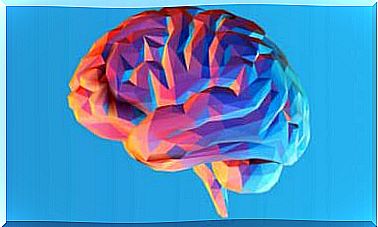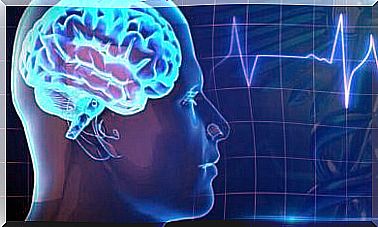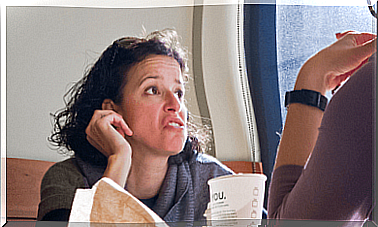Why Is It Difficult For Me To Relate To People?

“I have a hard time identifying with people. Is there anything out of the ordinary about me? ” What’s my problem? ” These are recurring questions for those who find it difficult to socialize, make friends, find a partner, or assert themselves in any setting. Beyond what you might think, this is a fairly common problem.
Agatha Christie says she has a deep fear of public appearances and interviews. Jorge Luis Borges, for his part, has always been shy, to the point of sending his friend Oliverio Girondo to replace him in any public task.
None of them were good at socializing, but the truth is, they didn’t want to either. They just preferred to stay in their safe space, their creative day-to-day. Others aspire to have better people skills to assert themselves in college, work, and any place other people simply frequent.
So, if some personalities, like Albert Einstein or the writers Cormac McCarthy and Harper Lee, were really shy, others who also have social problems are not really shy. Find out together what is behind these behaviors.

The causes why it is difficult for me to relate to people
When a person wonders why it is difficult for them to relate to others, they think of the image that society sends to them. You should know that our society excessively values extraversion, openness and this social figure endowed (apparently) with a supreme capacity to connect with others and to stand out.
However, to assume this idea is, in a way, a mistake. Both introverts and extroverts can be socially successful. Additionally, extroverted personalities can clearly have difficulty building relationships.
In short, the difficulty of socializing effectively is not always linked to shyness or introversion. These are possible causes, it is true, but they are not the only ones. Let’s analyze the causes in detail.
Relational rules internalized in childhood
A decisive factor that explains our abilities or our difficulties in communicating is found in our childhood. Most of us have subconsciously internalized the relationship rules instilled in us by our primary guardians. If these rules didn’t work for them, they won’t work for us.
It’s the same with communication. If our parents’ language skills weren’t very good and if they didn’t interact much with us, we would probably experience the same difficulties.
- The presence of non-loving caregivers will always have an impact on the child’s verbal, emotional and behavioral skills. So much so that outgoing children can have serious limitations in social and relationship skills. A direct effect of this education.
- On the other hand, dysfunctional family environments, authoritarian or with little social contact, are also at the origin of these relational limitations.
Psychological and neurological dimensions
Not everything has its origin in our childhood. Sometimes the reason it’s hard to connect with people is sometimes psychological, even neurological. Here are some examples :
- Autism spectrum disorders. Asperger’s syndrome, for example, can go unnoticed. It may explain why many adults find it difficult to have social interactions.
- Anxiety and stress are factors that also limit and hinder our socialization skills.
- Certain psychological conditions such as antisocial personality disorder, social phobia or agoraphobia are also at the root of these difficulties. However, in these cases, these are realities in which the person himself or herself shuns or deliberately avoids social contact.
The sensitivity of sensory perception
We were talking at the beginning about how people like Agatha Christie or Borges avoid social contact. Their obvious shyness has led them to prefer safe environments and to avoid exposing themselves to situations that generate stress and discomfort. Shyness is, of course, one of the most obvious reasons.
Now, more than focusing on this pattern of behavior, it is interesting to understand what is behind it. Shy people perceive the outside world differently due to what is called the sensitivity of sensory perception. What does this dimension consist of?
- The brains of shy people are different. On average, they need more time to react to stimuli.
- They are more introspective and thoughtful, which makes it difficult for them to adapt to these social environments in which it is necessary to act quickly. Crowds, noise, or exposure to situations over which they have no control create stress and discomfort in them.
All of these factors tell us that shyness also has a neurological basis. However, with the right strategies, it is possible to improve sociability.

I have trouble identifying with people, what can I do?
We can all improve our social skills. Learning to relate to each other to benefit from interactions in any environment is accessible to everyone. Here are some starting points:
- Find situations in which you feel comfortable. You can use online apps to find people with the same hobbies as yours. Later, you can open yourself up to other scenarios.
- Reduce your self-demand. Avoid focusing so much on yourself. On the fear of failure. Shift your gaze from the inside out to let go, to enjoy spontaneous conversations… Don’t believe everything your mind tells you.
- Rely on people you trust. Share your fears with those people who know you and can guide you.
- Learn stress management techniques.
- Strengthen your social skills : communication, insurance, emotional management …
If your difficulty in communicating is chronic, if you have been dragging it around for years and if it affects your quality of life, do not hesitate to consult a professional. There are therapies that can make a big difference.









